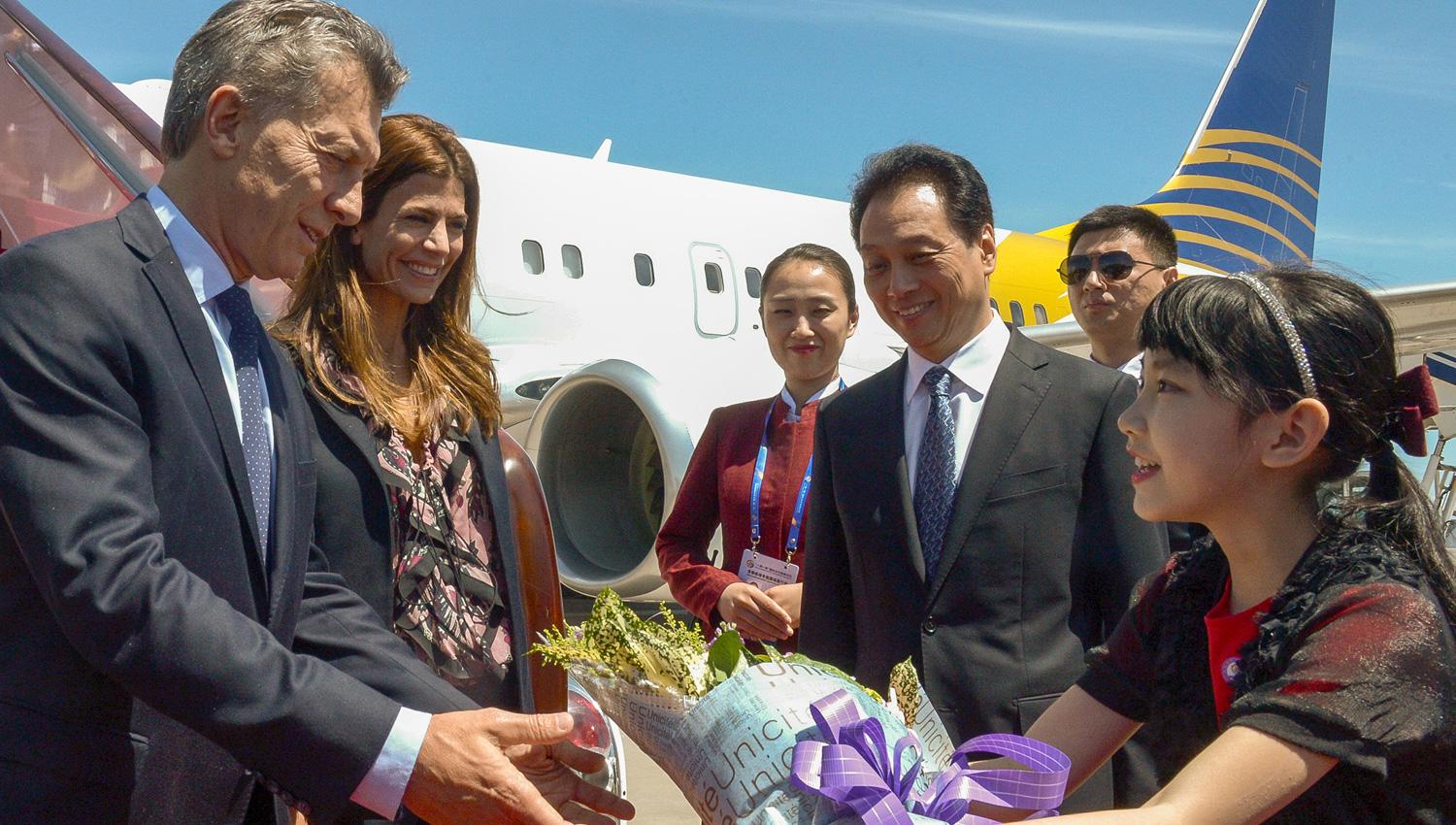Economy
Related: About this forumFearing default, Argentina's Macri accepts $8.7 billion Chinese currency swap
The People's Bank of China reached an agreement with the Argentine Central Bank today to expand its 70 billion yuan ($10.3 billion) currency swap with Argentina by another 60 billion yuan ($8.7 billion).
The agreement - over twice the $4 billion swap announced on August 16 - comes amid a severe financial crisis in Argentina that has led to over $30 billion in capital flight so far this year and the worst recession since the last debt crisis in 2001-02.
As of June, GDP was down 6.7% and unemployment had risen to 9.6% - the highest level in 12 years.
Today's agreement was a needed financial as well as political boost for President Mauricio Macri, who has faced massive protests and calls to resign since a 2016-17 debt bubble imploded in April.
The carry-trade debt bubble, known locally as the financial bicycle, contributed to a doubling in the country's public foreign debt to nearly $200 billion and to renewed fears of a bond default.
Argentina's foreign exchange reserves have fallen $14 billion in the last three months as the Central Bank sells dollars to prop up the peso - which nevertheless fell from 20 to the dollar in April, to 39 currently.
Avoided by global bond markets since January, Macri has since tapped lenders of last resort such as the Bank for International Settlements and the vulture fund BlackRock ($2 billion each in May) - and in particular the IMF, which issued a $50 billion stand-by credit line on June 8.
Macri has already spent nearly all the $15 billion drawn from the IMF credit line on June 22, and is seeking both an $18 billion advance and a $20 billion extension to the credit line.
The IMF agreed in principle today to a extension of $3-5 billion - but as yet no cash advance.
Chinese two-step
The Chinese-Argentine currency swap was originally signed in 2014 by Macri's center-left predecessor, Cristina Fernández de Kirchner, when Argentina was shut out of credit markets after its bondholders were blocked from collecting payment by a New York judge seeking to pressure the country to pay vulture fund holdouts a 1600% return.
Macri, who sought closer ties with the U.S., condemned the swap, and after taking office in late 2015, paid vulture funds an estimated 1160% payout and distanced Argentina from the Asian giant.
He then ordered construction on two hydroelectric power plants and two nuclear power plants cancelled in 2016 - an 85% Chinese-financed $20 billion investment.
But after trade and currency deregulation led to the current account deficit doubling to $31 billion, Macri changed tack and in June 2017 signed a three-year renewal of the 2014 currency swap.
While China is already Argentina's second-largest trading partner, a record $7.7 billion deficit with China made up 90% of its merchandise trade deficit last year. The currency swaps have helped finance this shortfall.
At: https://translate.google.com/translate?hl=en&sl=es&tl=en&u=http%3A%2F%2Fwww.ambito.com%2F934601-bcra-renueva-swap-con-china-por-mas-de-us-10000-millones
Greeted in Beijing during a state visit last year, Argentina's Macri has recently sought closer ties with China after his own deregulatory policies plunged the country into its most severe crisis since 2002.
